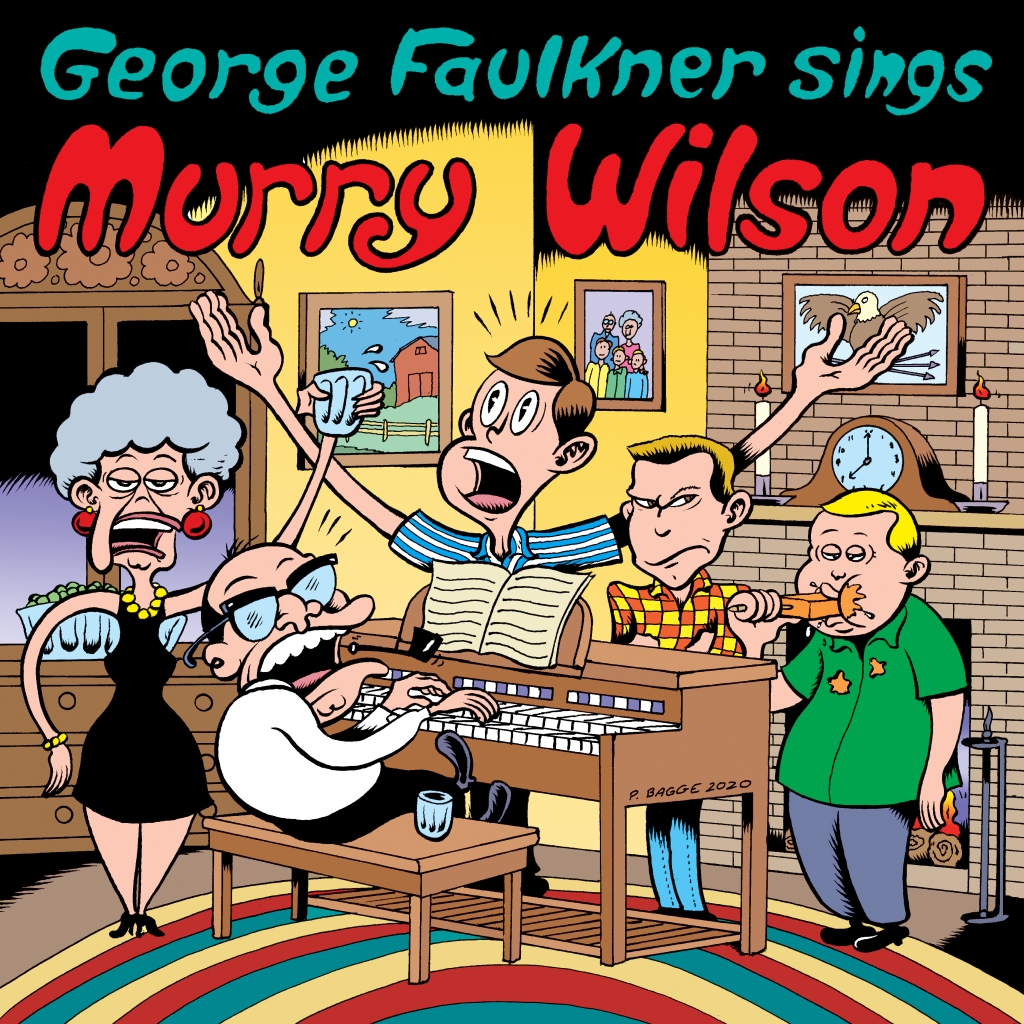
George Faulkner Sings Murry Wilson. A vinyl-only LP featuring 11 new recordings of vocal songs written by Murry Wilson – the father of the Beach Boys. The album features a cast of session musicians from NYC, London, and Philadelphia. Only 300 copies pressed. Released Oct. 16, 2020. Order now via Bandcamp at this link and at select record stores.
Murry Wilson was a songwriter. He started writing professionally (his first copyright submissions are dated) around the time his first son Brian was born in the early 1940s. He kept writing up until he died, at age 55, in the early 1970s. Records indicate he took a break from songwriting in the early 1960s – as he led the Beach Boys as their manager – but it’s likely he never fully stopped writing music. He had it in his heart, as did his wife Audree, who is described as having been a musician, organist, and pianist. Together they passed a love for music along to their children. By all accounts, Murry wanted nothing more than to somehow make it in the music industry, and he did.

Murry Wilson’s first copyright submission
And Murry had enough success in songwriting to have over 25 of his roughly 50 compositions recorded (and re-recorded) by a variety of acts. This being a testament to not just his ability to write a quick hook and a snappy title lyric but in his ability to hustle and sell his songs to a host of labels, producers, bandleaders, and groups. Prior to the birth of the Beach Boys, Murry learned the art needed a steady push if it were going to go anywhere. He did alright for himself.
Brian Wilson once said that people often mislabeled Murry as an untalented songwriter, but “[he] had talent, he sure did. He was a talented man. He had some music in him… My favorite song of his was one called ‘His Little Darling and You’. It was a ballad.” Even after Murry’s death, Brian is on record saying he wanted to record one of Murry’s songs – Lazaloo – in tribute to his Dad.
Murry Wilson, discography and song list:
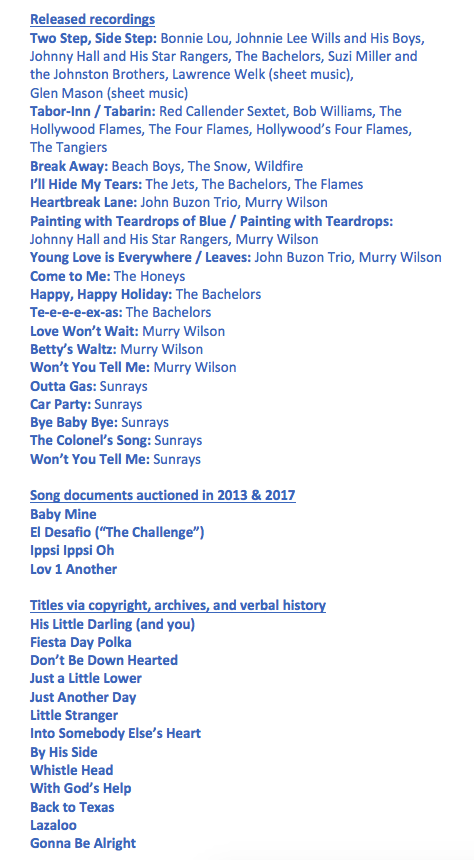
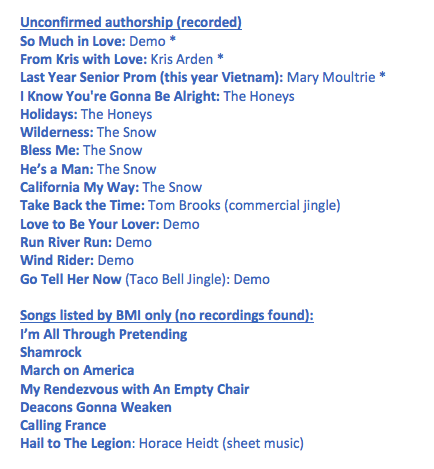
Murry worked the independent side of the music industry initially, as best he knew how to get through major label doors. He ramped up that effort throughout the 50s, but many believe that in the early 60s he came to grips with the fact that his kids were good enough to possibly be his long-sought-after entrée to the business. At that point, he jumped in with all the time, resources, and energy he could muster. After more than a decade of hustle in LA, he was finally able to make it in the music industry through managing The Beach Boys. And, as we all know, he pushed his kids straight to the top at lightning speed.
Phase one of the Beach Boys, you had Murry Wilson managing, whether the band liked it or not. He did a really good job. Probably didn’t have a great bedside manner, but out in the field it worked great, you know, schmoozing the radio station guys with presents – not payola or bribes – and fining the band for swearing. I always liked that one. Murry had a pretty interesting management style that eventually got too abrasive for the band, but the abrasive style was exactly needed in those times to launch the band.
-Bruce Johnston, 2009
Murry also had a hand in one of the great Beach Boys songs late in his life – Breakaway – and he released a solo instrumental album called The Many Moods of Murry Wilson. He submitted his last song to the U.S. copyright office four months before his death.

Murry’s last copyright submission
There are a lot of stories about Murry being an awful husband and father. It is likely due to those accusations that until 2018 – when George Faulkner launched the final phase of this project – nobody had ever deeply researched the music that Murry created throughout his life, or documented it as comprehensively as you see on this page. Learning that he started writing songs when Brian was a baby, one must believe his work had at least a minor level of impact on his children and their eventual songwriting endeavors so digging for facts was bound to happen eventually. One thing is certain, decades as a songwriter and pitchman set Murry up to know how to be a fledgling manager when opportunity knocked.
______________________________________________________________________________
I do not pretend to know what actually went on inside 3701 West 119th Street, Hawthorne, California, as Brian, Dennis and Carl Wilson were growing up with their parents, Audree and Murry. Only the Wilson boys fully experienced Murry’s strengths and shortcomings as a father. In fall 1961, Murry was 44 years old, owned his own leased machinery business, had three teenage sons, each two years apart, and the family lived in a two-bedroom, one-level home.
On his modest salary, Murry provided Brian with accordion lessons, a record collection, a meeting with his musical idols, the Four Freshmen, a Wollensak tape recorder and a used 1957 Ford Fairlane for his senior year at Hawthorne High. Al Jardine recalled Brian was a natty dresser in high school, especially noting his stylish Florsheim loafers. Dennis had a motorized go-kart, a BB gun, a memorable 10th birthday party and a 9-foot surfboard. Carl had an acoustic-electric guitar, an amplifier and guitar lessons. Material possessions do not make a childhood happy, but Murry did his best to provide his boys with things they enjoyed. And no one fought harder for the fledgling Beach Boys than Murry.
Key players in the early Beach Boys’ story like Chuck Britz, Stan Ross (co-owner of Gold Star studio), Russ Regan and Fred Vail are all on record with positive comments about Murry, crediting him with much of the group’s early success. Interestingly, most of the negative things the brothers said about their father came after he died from cardiac arrest on June 4, 1973. Nick Venet, the band’s first staff producer at Capitol, provided much anti-Murry fodder. But keep in mind, in summer 1963, after Murry told Capitol the Beach Boys refused to work with Venet, Nick was gone from Capitol within a few months.
Now, before I am accused of being a Murry apologist, by many accounts he was a flawed man, haunted by his own rough childhood. Perhaps Murry’s greatest shortcoming was not recognizing the need to provide a more protective environment for Brian, a sensitive soul who, at the time, was doing everything, and not knowing when to step back and allow his sons the freedom to pursue their own creative vision. But without Murry there would have been no Beach Boys.
– James B. Murphy, author, Becoming the Beach Boys, 1961-1963 (McFarland, 2015)
______________________________________________________________________________
As pointed out in the discography list, there is strong evidence that Murry likely wrote over 50 songs in his adult life. About half were recorded, a bunch copy-written, a handful professionally demoed, an unknown amount submitted to song-poem outfits, many published. He even mailed some on paper (sheet music?) to himself occasionally to save on copyright submission fees. If there are boxes of Murry Wilson memorabilia out there anywhere, it is highly likely those boxes contain songs that nobody has ever attempted to record.
At least four songs seemed to make it out of the hands of the family, all possibly related to the 2006 warehouse ‘find’ of Beach Boys memorabilia (which the Beach Boys unsuccessfully sued to recover in 2007). Two Murry songs were bought at this auction in 2013 (see discography above) and two others were auctioned in 2017. The buyers were contacted for this project but did not respond to queries. Those four documents sit waiting to be turned into recordings if the owners ever decide to share them.
Click to view: Personal Murry documents auctioned by Juliens in 2017
Which leads to this new album. George Faulkner Sings Murry Wilson. What is on it, where did the songs come from, and how do we know if they are legit? The first criterion for the album was no instrumentals. We already have Murry to thank for the all-instrumental Many Moods album. Second, if the songs had previously been recorded and released by Murry, The Beach Boys, The Sunrays, or The Honey’s, they were not considered for this project either. Those recordings cannot be improved upon.
The internet and Beach Boys history books reveal a ton about Murry and his work. But the deep Murry research for this project truly began with the songs that he submitted for copyright with the U.S. Library of Congress. This exercise was an eye-opener as it revealed song titles that had never been collected or written about before (the list above is the most comprehensive ever published), and after formal information requests had been submitted to the copyright office, the LoC stated that they had destroyed all of Murry’s submissions (they had been kept “for the longest period considered practicable and desirable).” Mind-boggling and frustrating, but thankfully, at least we have all of the songwriter names, song titles, and the authorship dates that he submitted (some submissions include publishing information as well).

Among the documents destroyed by the U.S. Library of Congress, a song called ‘By His Side.’ Words by Murry, music by Mike Love. Mike was ten years old at the time.
Next, an exhaustive search for known recordings was conducted, including utilizing the work (books and posts) of Beach Boy historians and archivists and reaching out to them personally. This turned up a few title surprises, and recordings long forgotten. Unfortunately, the Beach Boys archives don’t have much in the way of documentation (a fact reinforced on Omnivore Records ‘Snow’ release) to confirm authorship of the compositions. All of the clues provided by folks like Jim Murphy and Alan Boyd helped quite a bit to put the larger puzzle together.
The research that may ultimately prove to be the most controversial would be the BMI listings for Murry Gage Wilson. There are a number of songs that BMI insists were Murry compositions, two of which made it onto this album. The full BMI listing for Murry Gage Wilson seems suspect to a degree, especially when compared with copyright documents running from the 40s through the early 70s. It seems a Murray Wilson (or two?) were writing and submitting songs for copyright throughout the time our Murry Gage Wilson was as well.
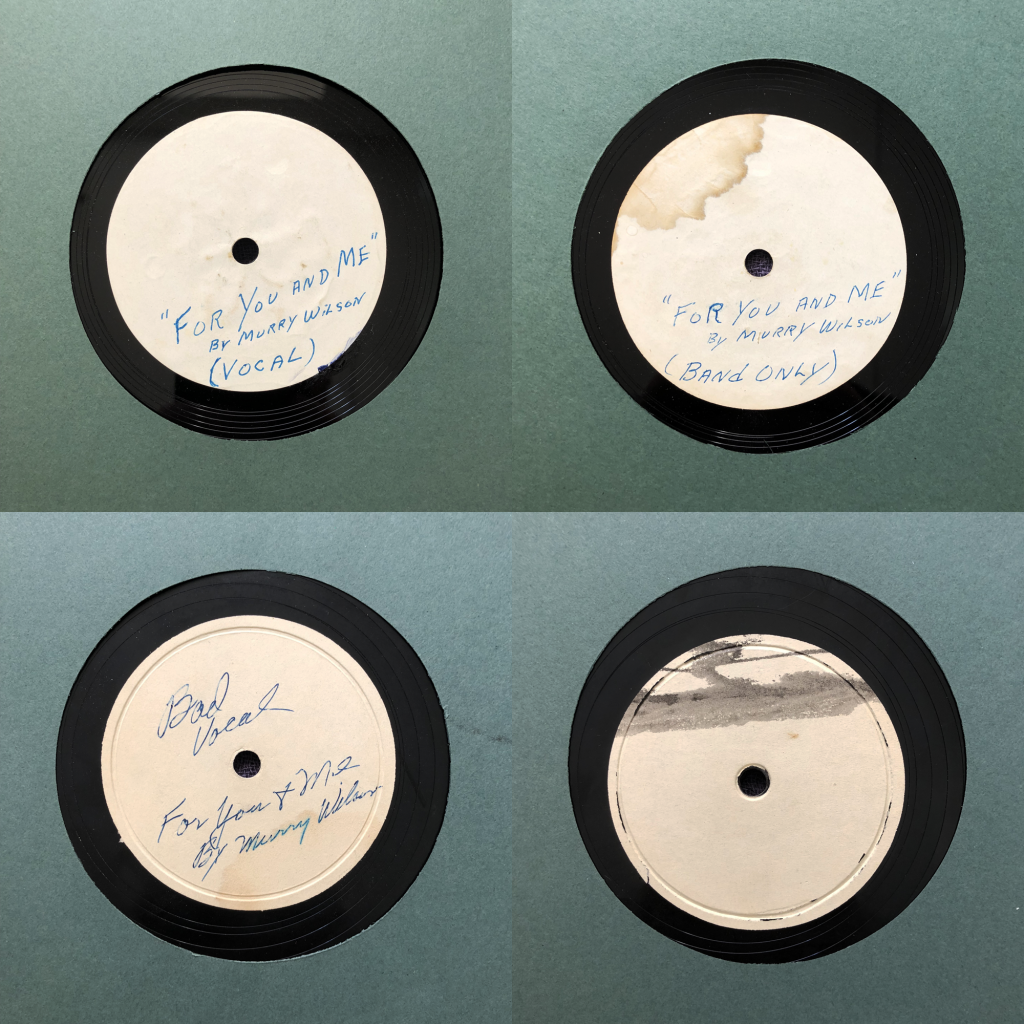
Acetates found at a Salvation Army store in Canoga Park, CA
But the research was an exciting roller coaster ride. In a stroke of luck, two demo acetates were found along the way via a contributor to Discogs – both of a song that Murry submitted for copyright in 1953 called For You and Me. These two acetates are worn down but do not appear on any bootlegs. Each has a vocal version of the song on the A-Side, and an instrumental of the song on the B-Side. They sound as if they were recorded in a demo studio with a demo studio band and singers. Likely cut straight to the acetates, as one is marked ‘Bad Vocal.’ They are aged and scratchy but uncovered Murry’s most patriotic song of all, that opens the George Faulkner Sings Murry Wilson album.
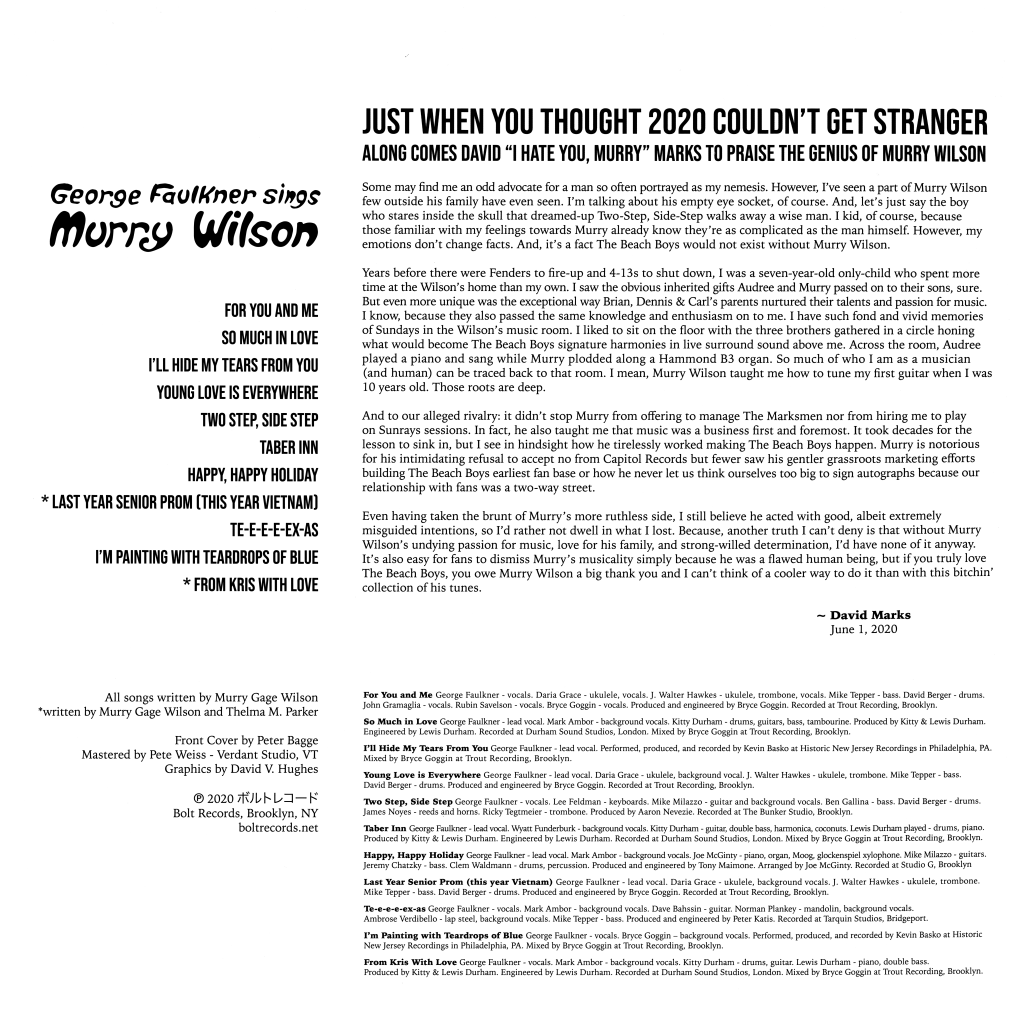
So why these 11 songs? These are all that were found. Sheet music for a 12th song called Hail to The Legion was found, a song in the BMI list under Murry Gage Wilson, but it couldn’t be satisfactorily verified beyond that for inclusion. That’s the whole story. It took about 6 months to find them all after many years of lightly poking around, and involved a lot of sleuthing, trading, and some buying. The L.A. Beach Boys community was amazing, as were a few folks on Discogs. Help from a collector in Tokyo was key as well, and support from a fan in the midwest US. Folks from the Beach Boys archive helped a great deal with database information.
A few surviving Murry-era buddies were helpful and supportive too, but none came up with any tracks. Some simply refused to get involved. Some had wonderful, positive stories to tell about him and dug through their archives to try to help, some just ignored the requests. Most people contacted though, understood this was just as much an exercise in attempting to retrieve and extend a small slice of music history as it was an exploration in sound recording and performance.
And maybe this project will inspire those in possession of Murry’s estate papers and personal items to go digging through that box in the attic once again to see what is in there and share them with the rest of us. Those letters he sent to himself, like the ones from the 50s in the auction link above? Those envelopes have songs in them. They remain unseen by the public. It would be a shame to let letters like those disappear forever.

* There are a few lingering questions about authorship authenticity that this album will leave in its wake. 9 of these tracks are rock solid. Three are not. Let’s go from easiest to argue, to most difficult:
So Much in Love. This song is in the Beach Boys archive. Murry cut a full band demo that includes a message by Murry asking the Beach Boys to consider recording it. It’s a Murry pitch for business. He also mentions it would be nice if they recorded it before ‘anything happens to me.’ They did not record it. No written proof was found in the Beach Boys archives that he wrote the song, but he says on the tape it was written by Reggie Dingleberry, a reference to his songwriting pseudonym Reggie Dunbar on the Beach Boys song Breakaway.
Last Year Senior Prom. Credited to ‘Murray’ Wilson and Thelma M. Parker via copyright in 1966 (that’s a red flag), the song was released on King Records (as was Bonnie Lou’s version of Murry’s hit Two Step, Side Step), and it was originally published by Fort Knox and Trio Music, who had published other Murry songs such as Tabarin (originally called Taber Inn) and I’m Painting with Teardrops of Blue. When contacted, BMI insisted this is the same Murry Gage Wilson (as his name is listed for this song on the BMI site), so this song made the cut. You be the judge.
From Kris With Love. This one is the most problematic. Credible claims have been made online that this is a song-poem. Released on an LP by an unknown label (Mic Records), performed by a no-hit wonder named Kris Arden. She is alleged to be a song-poem singer. This song was hard to track down but made the cut because it had the same co-author as Last Year Senior Prom (Thelma M. Parker), and because – again – BMI insisted it is legit Murry. It was researched exhaustively, but it is impossible to prove it is authentic.


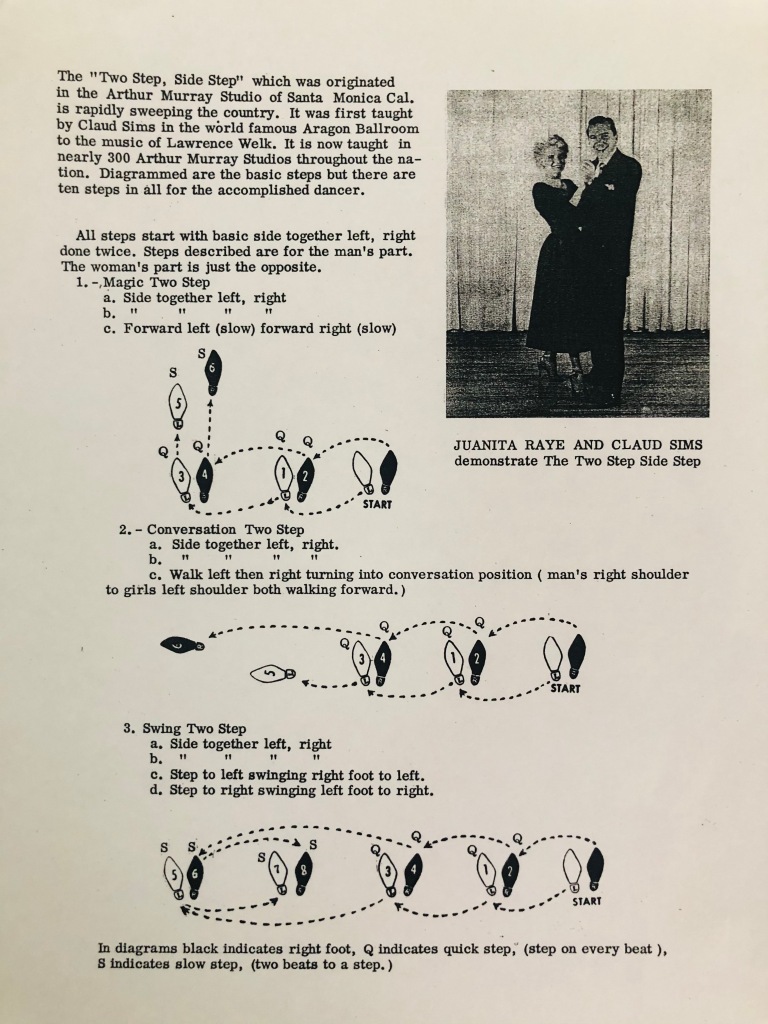
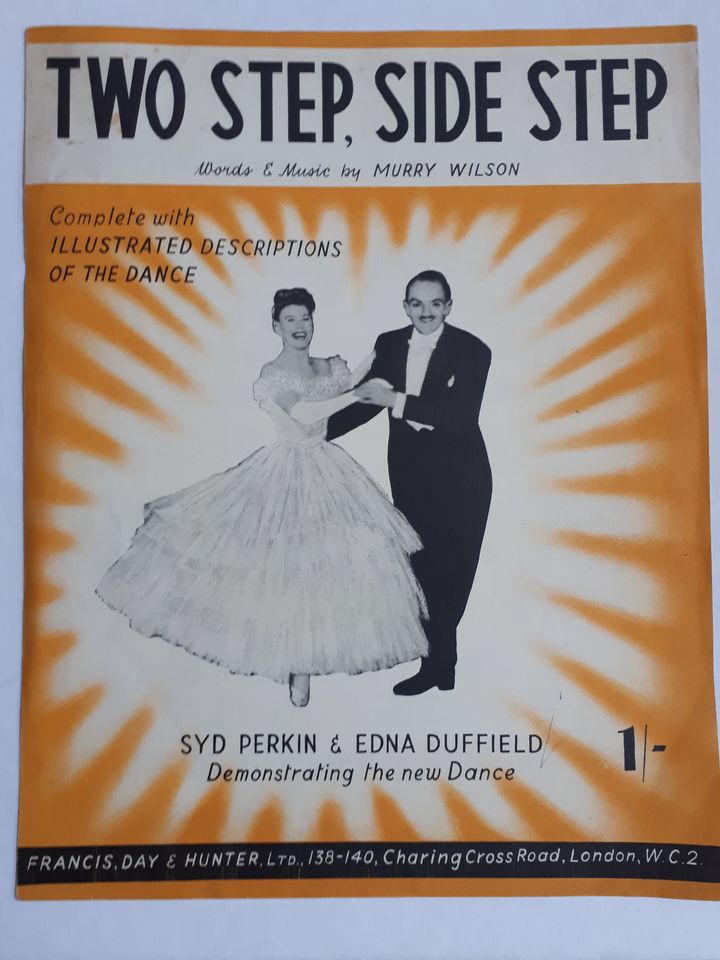


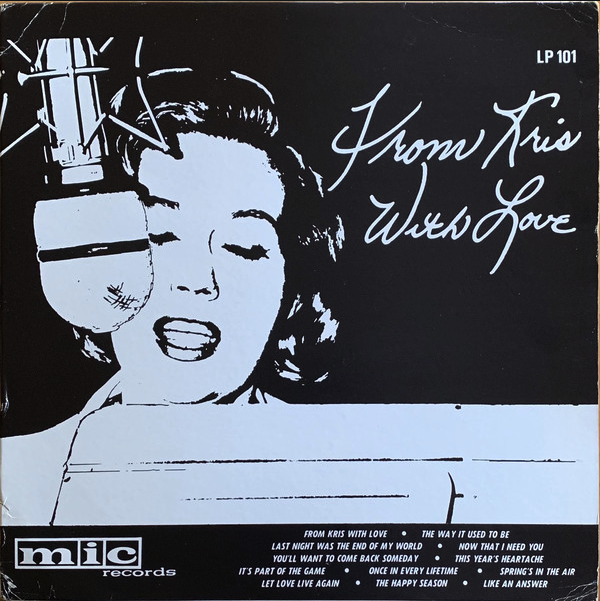






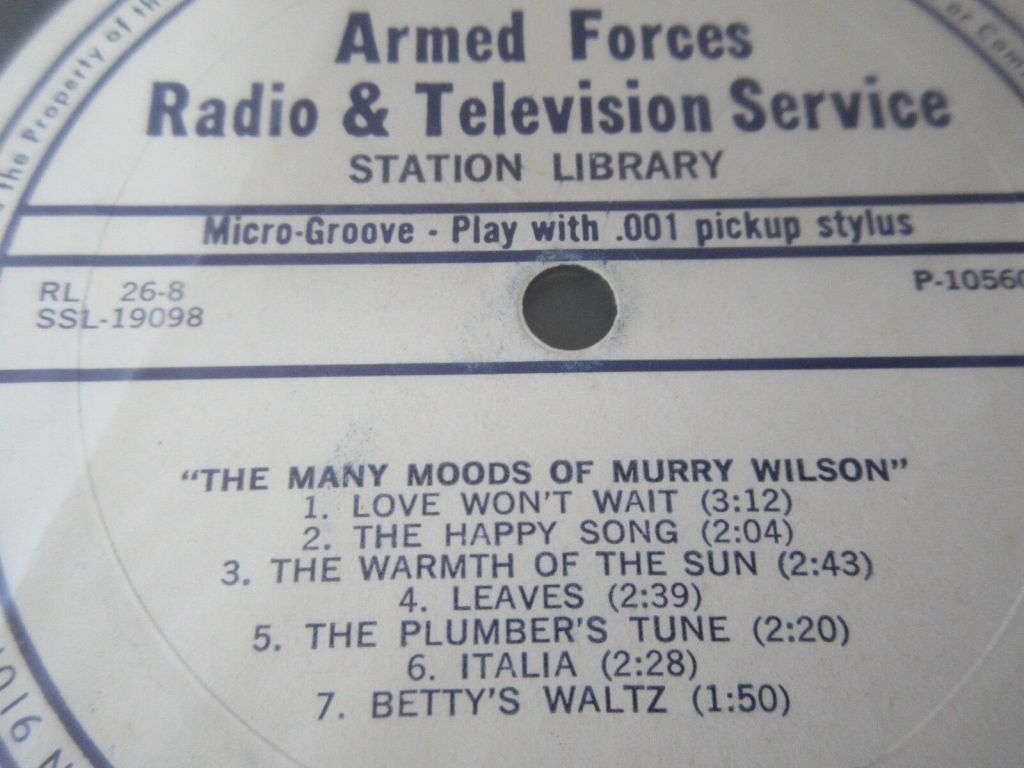
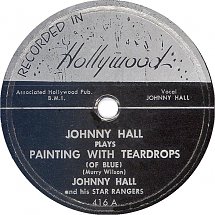
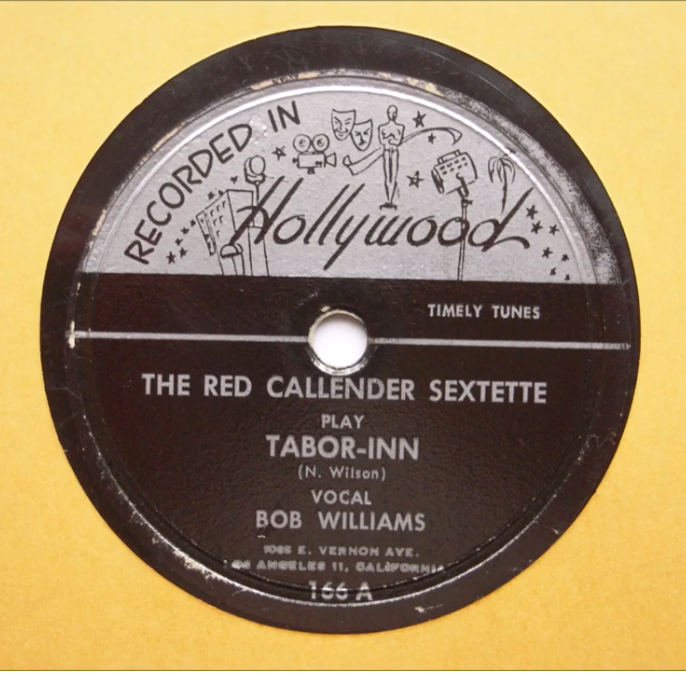

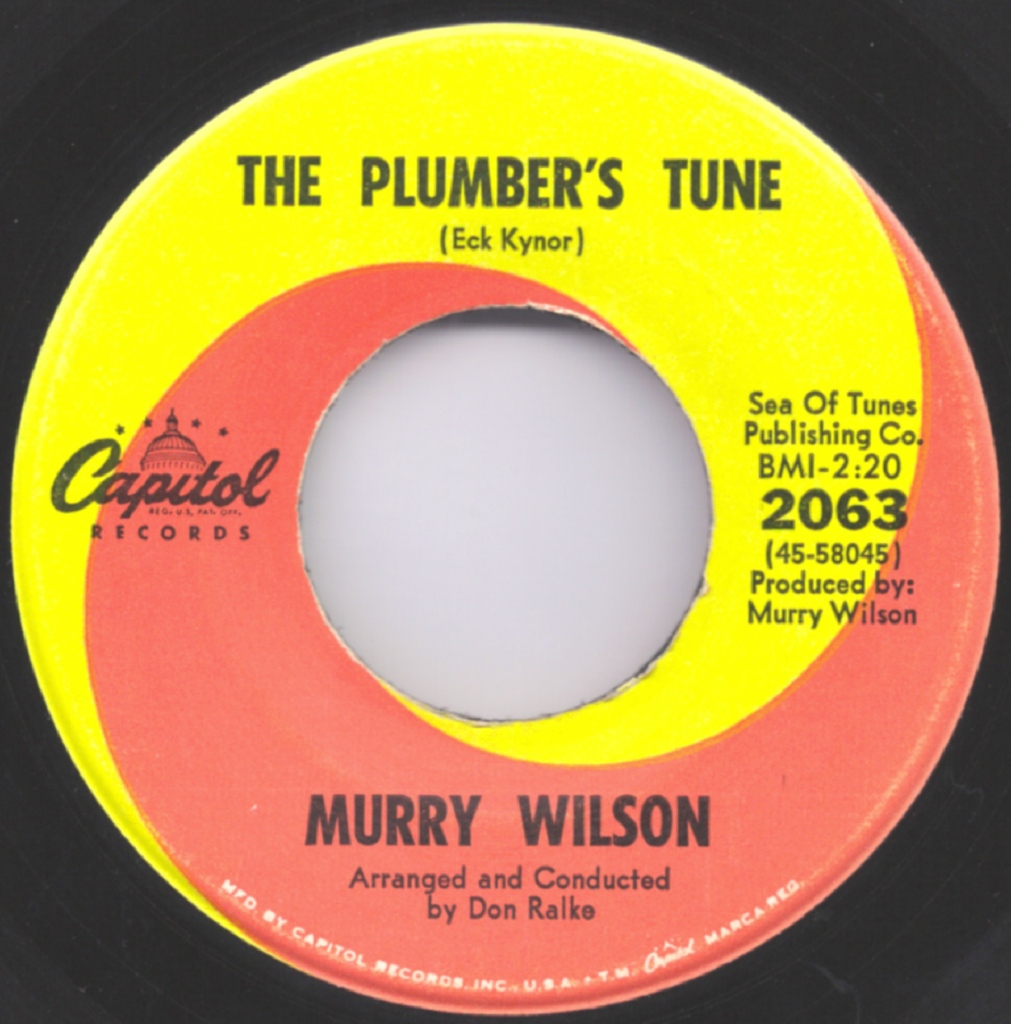


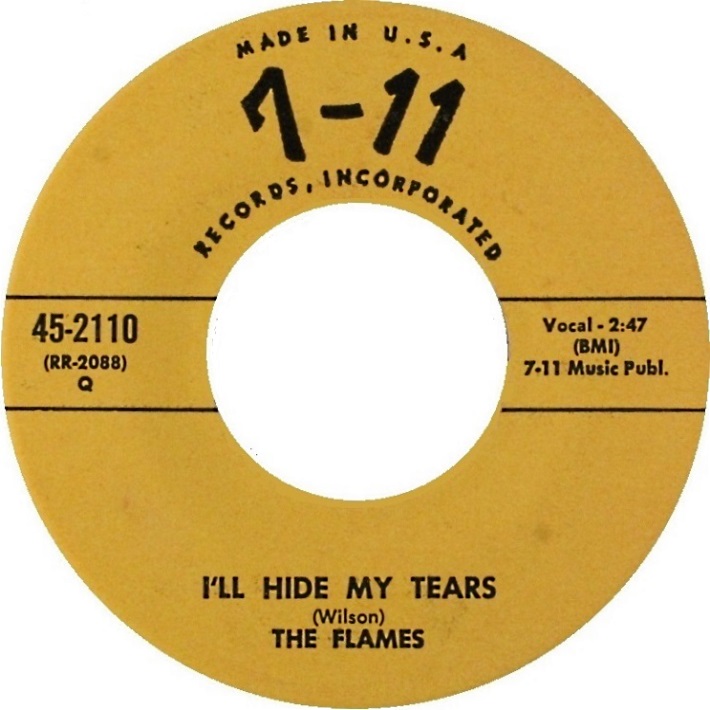

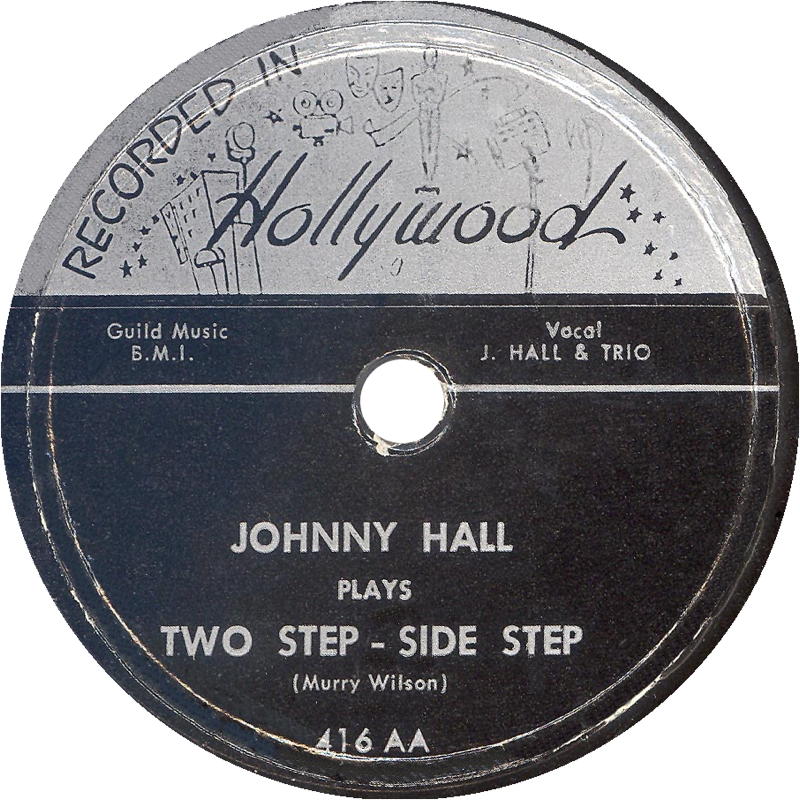
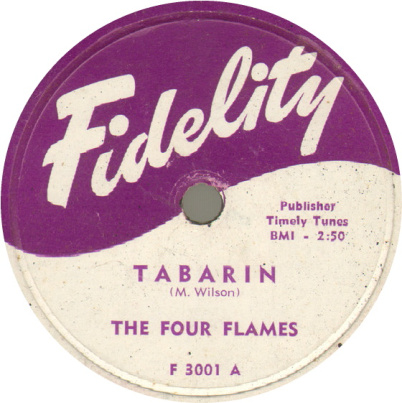
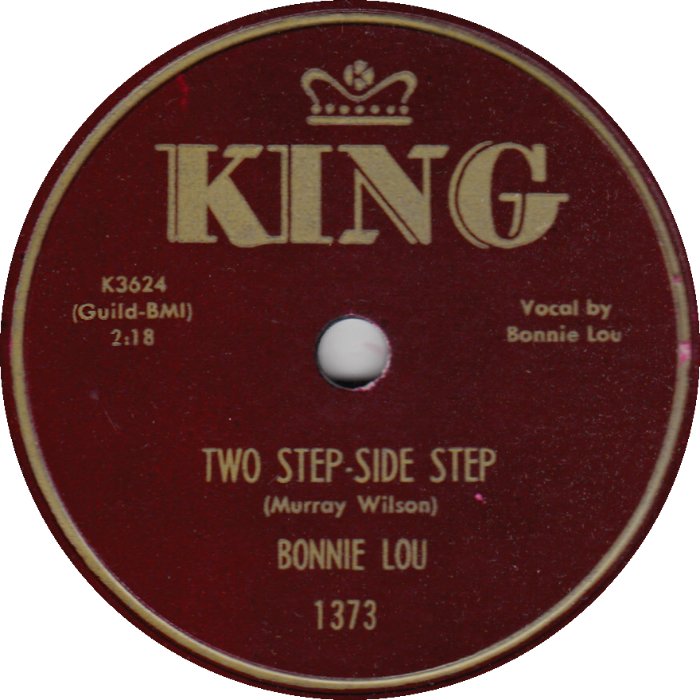


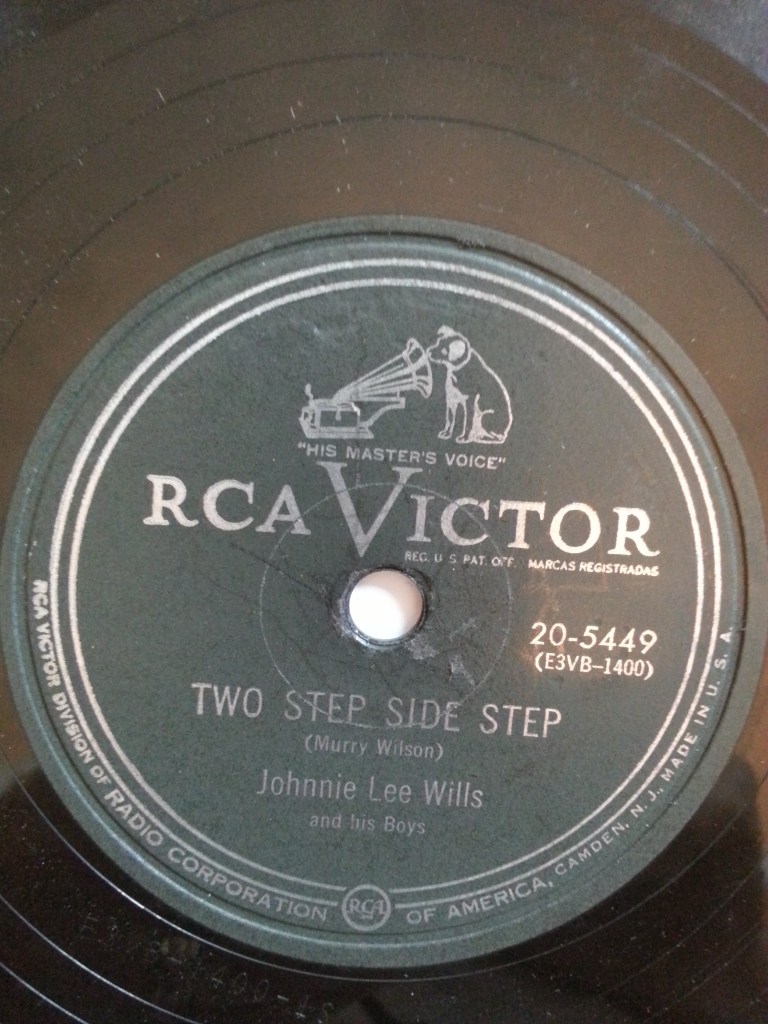

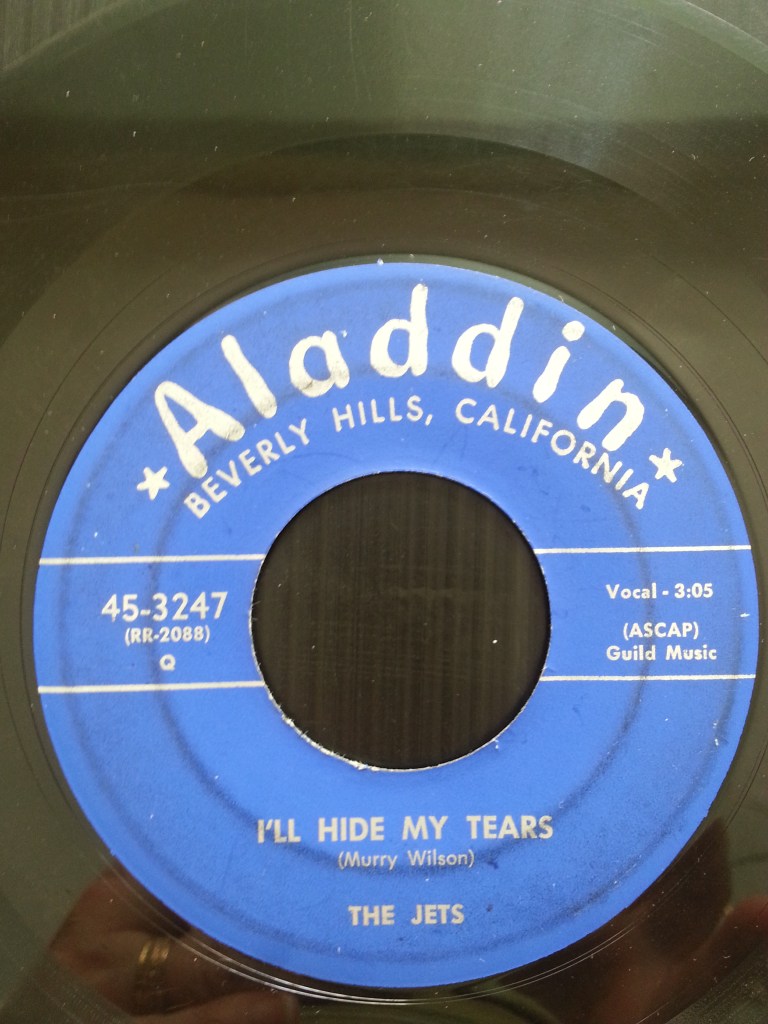
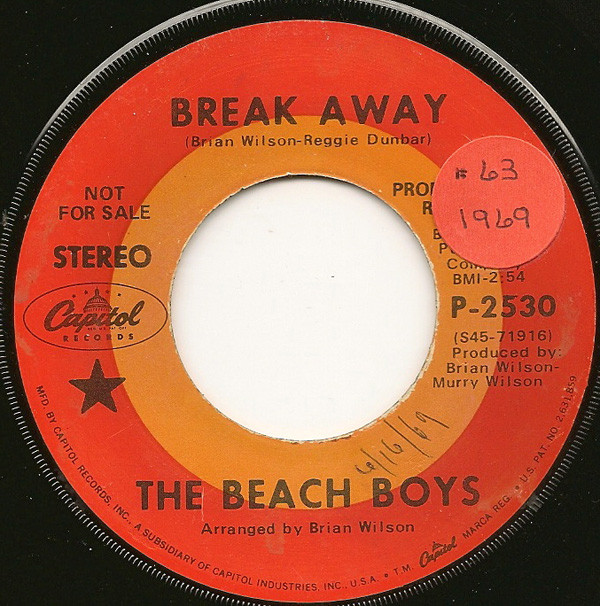
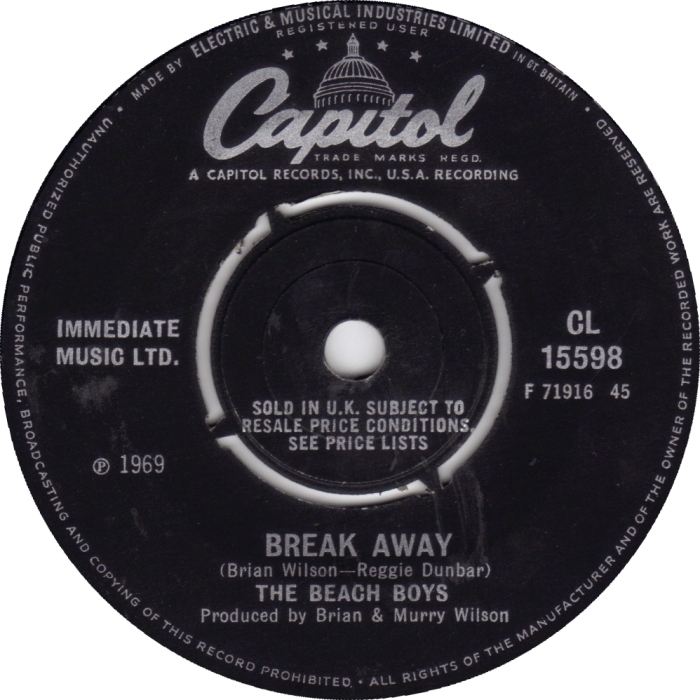

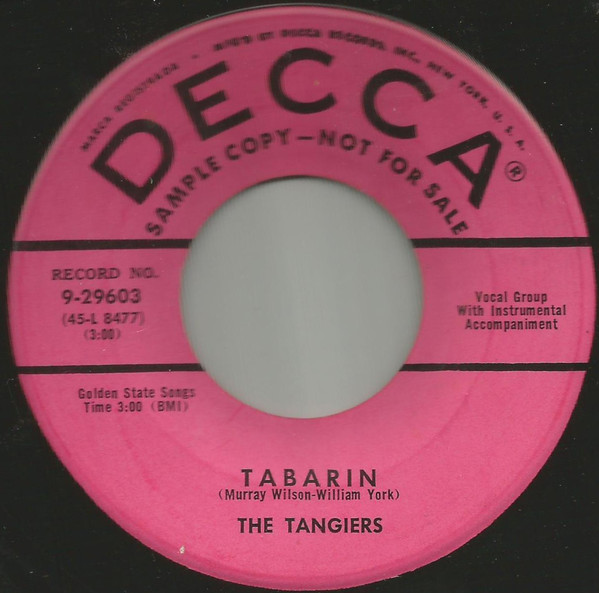
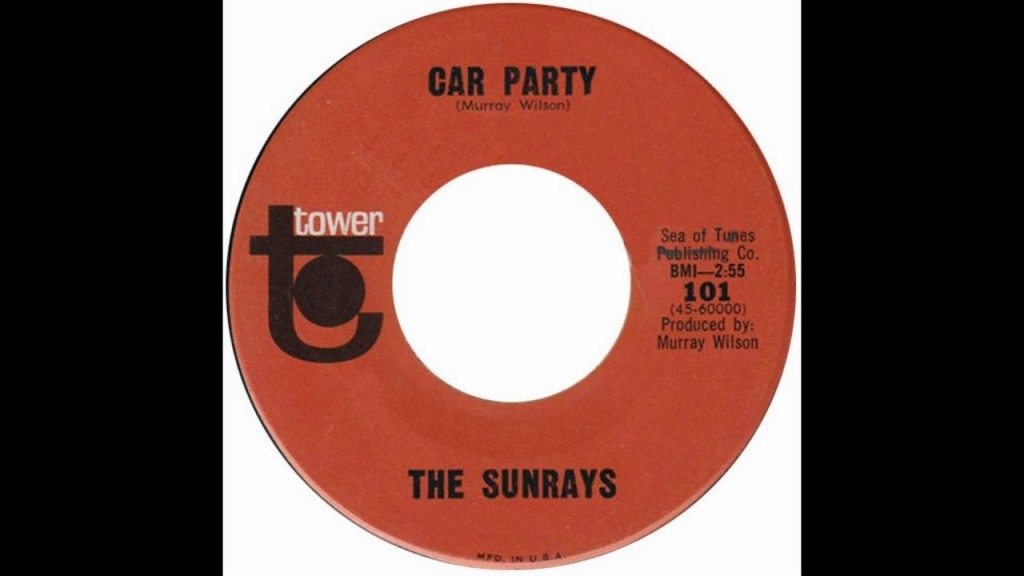

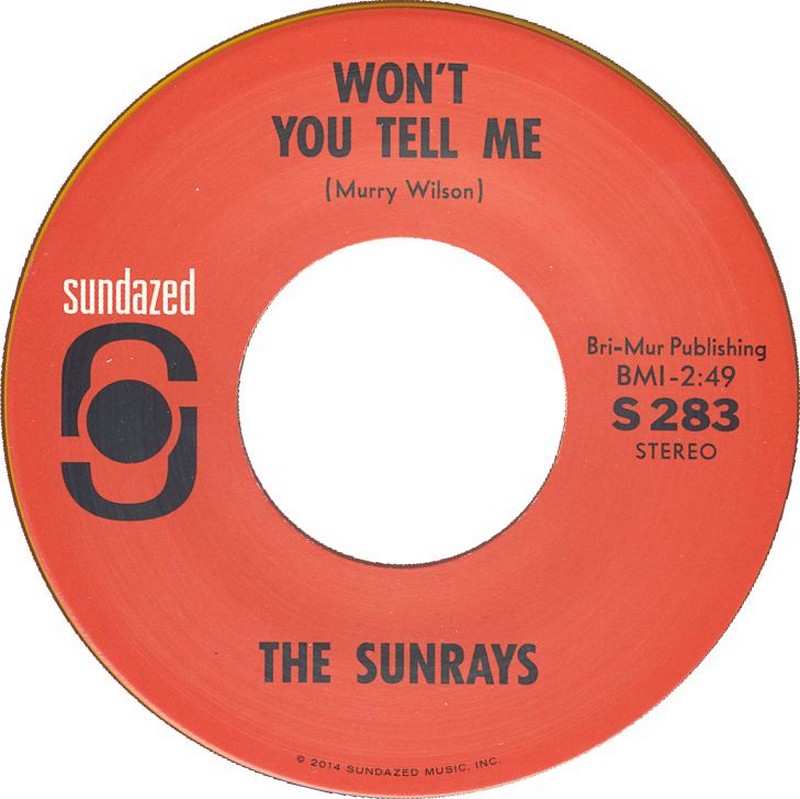
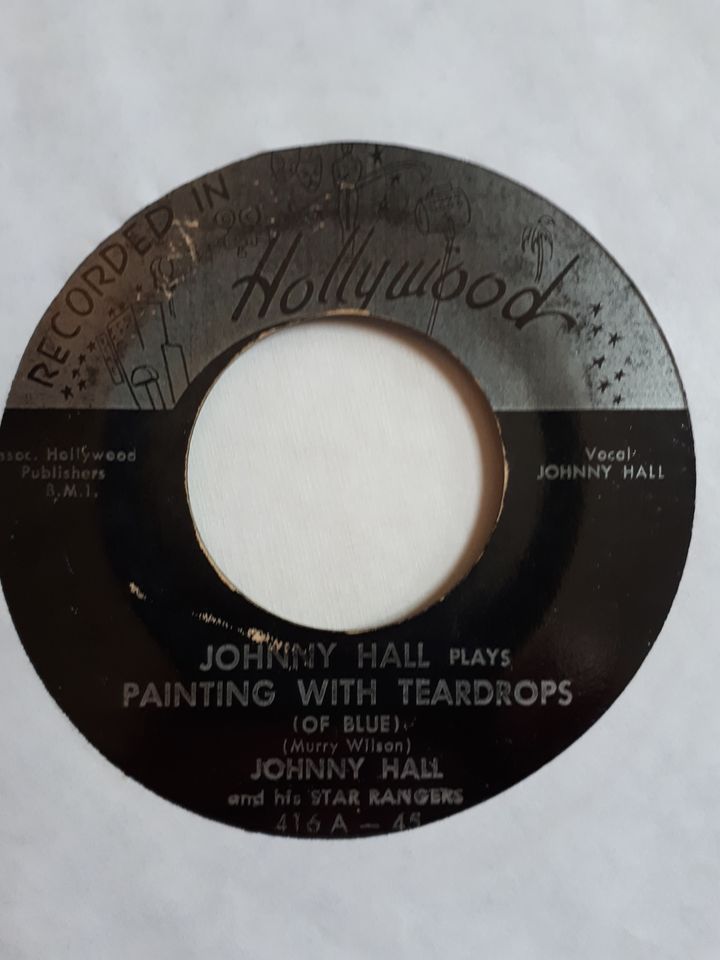
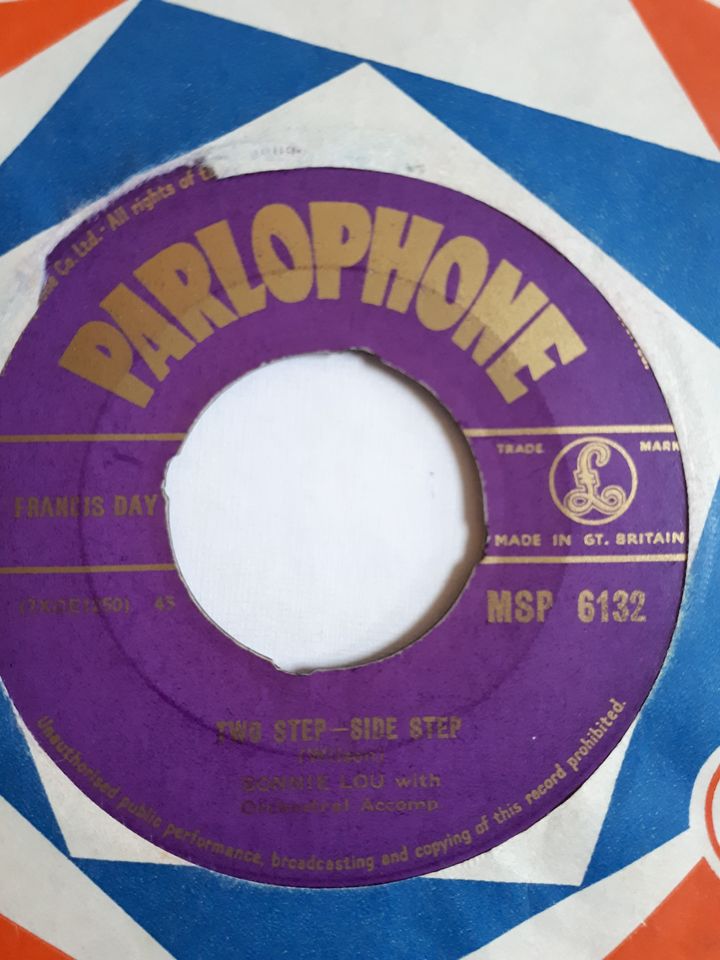
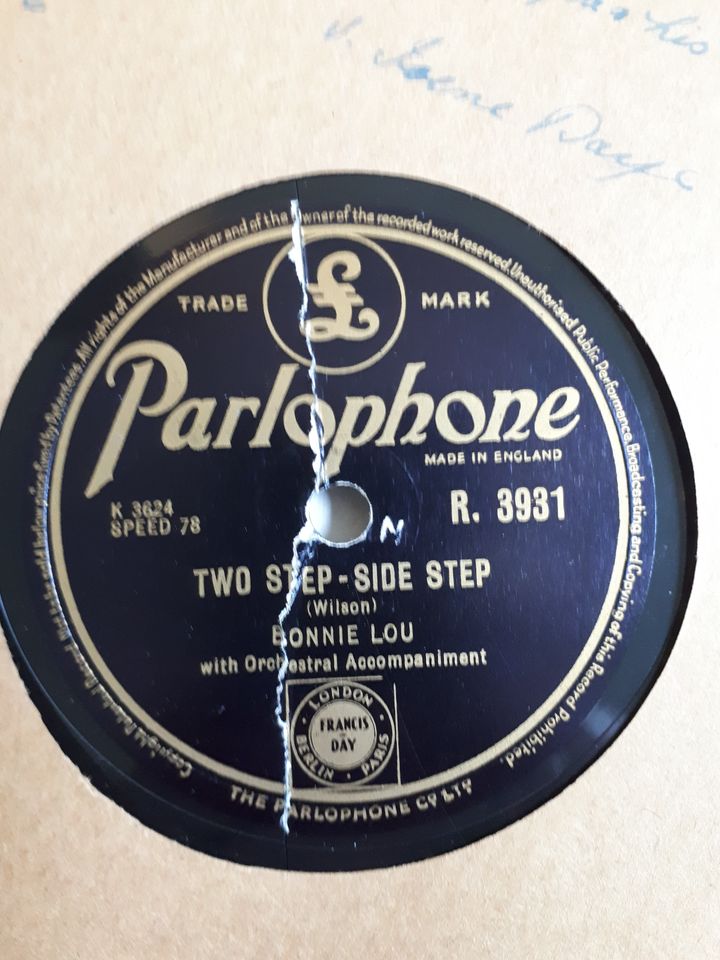

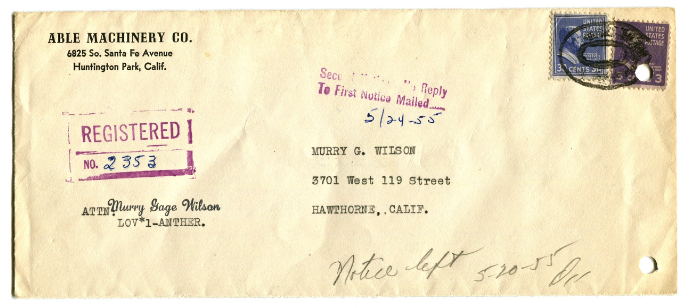
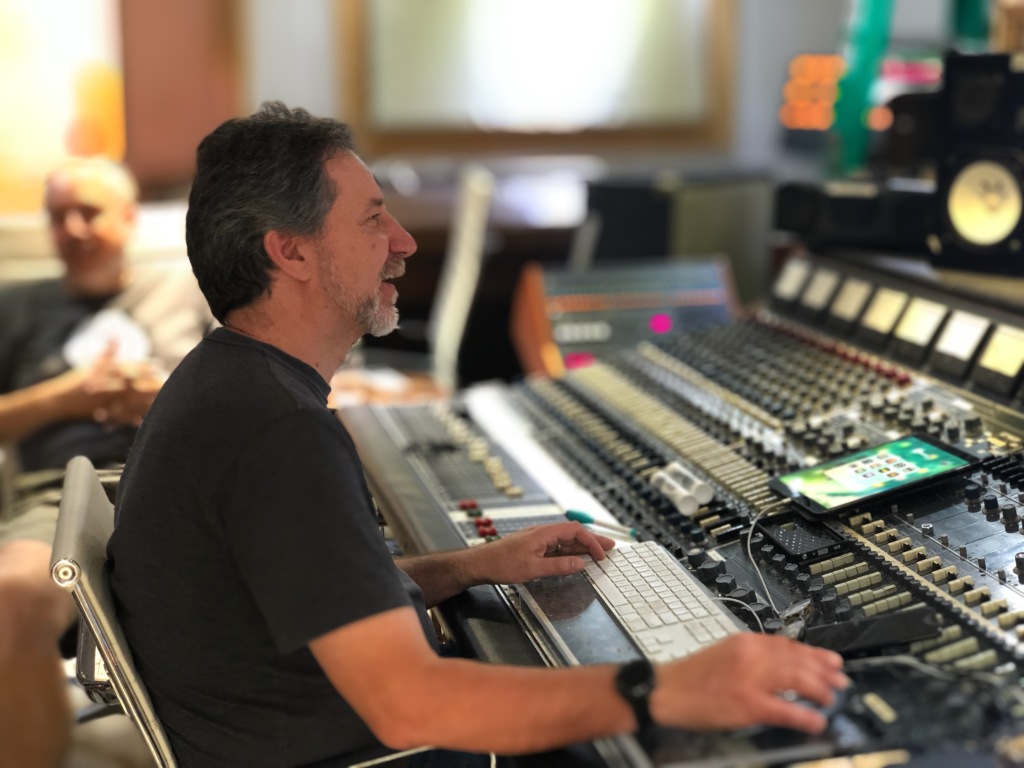


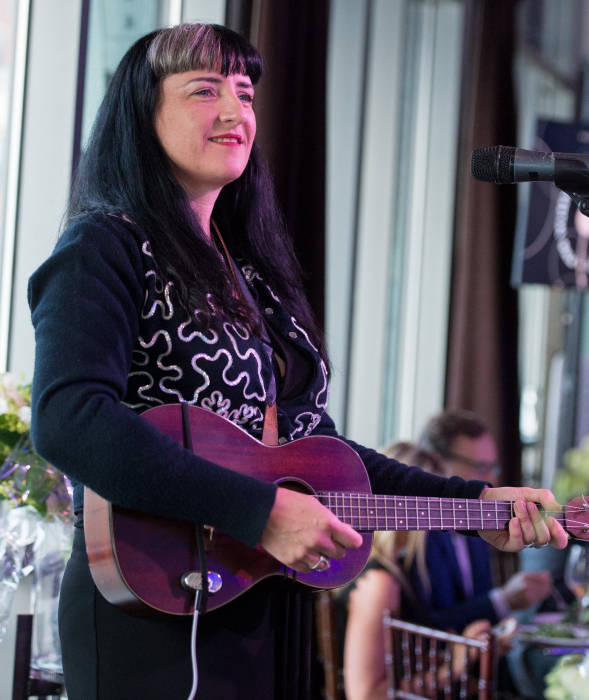




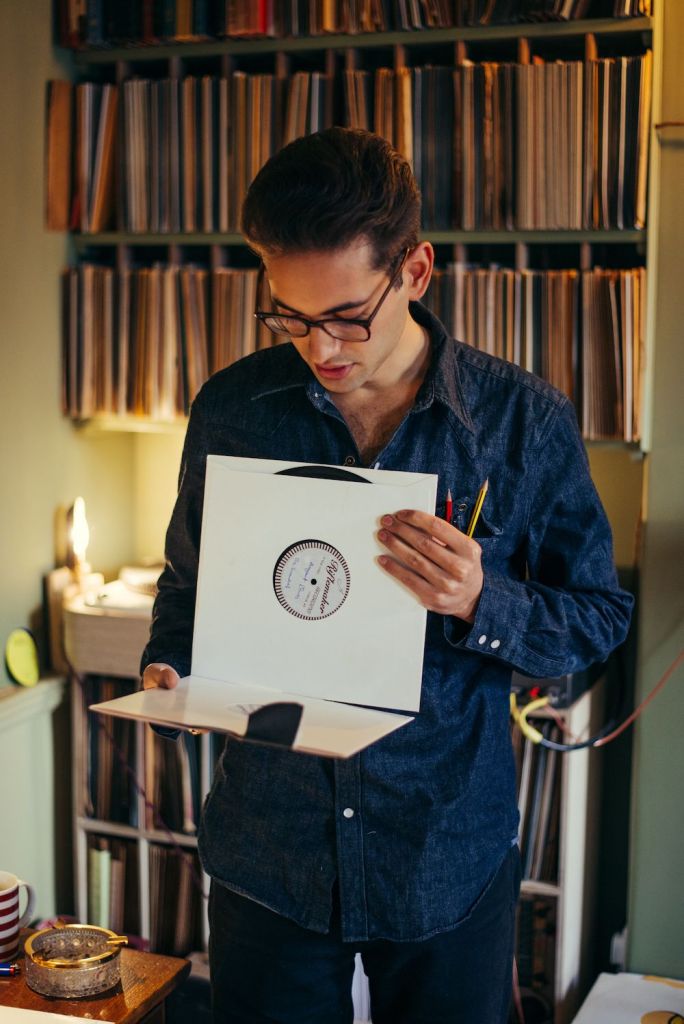
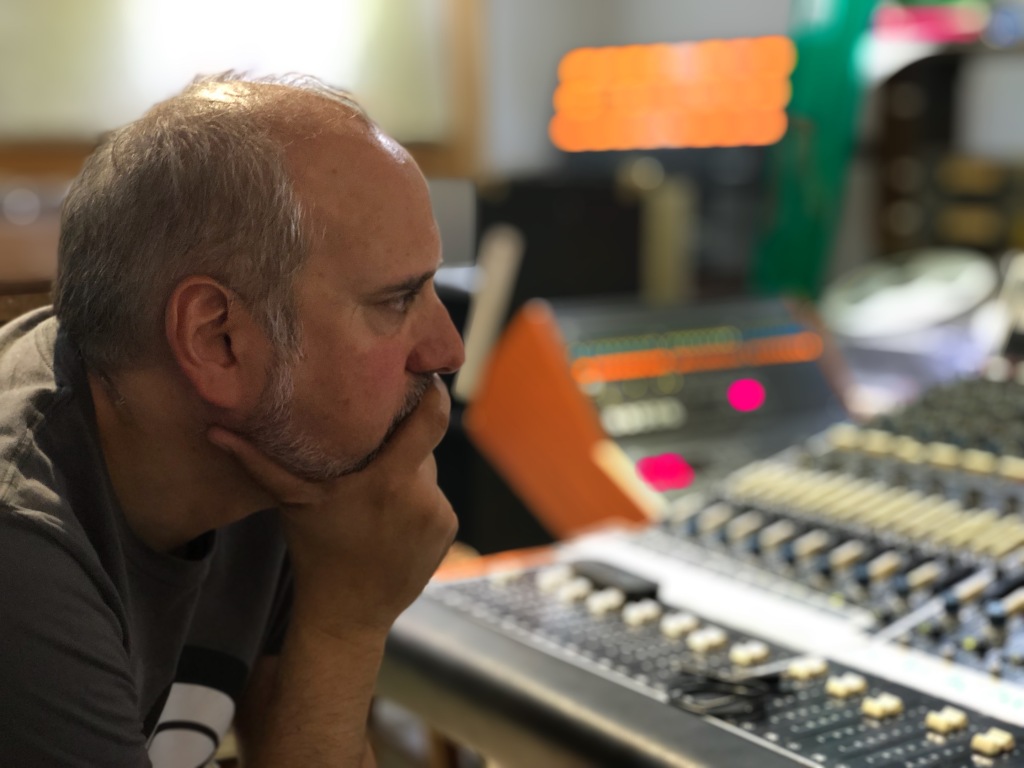
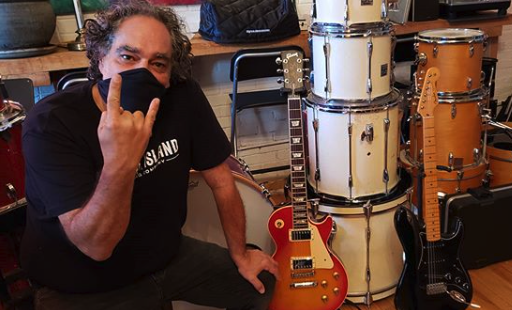

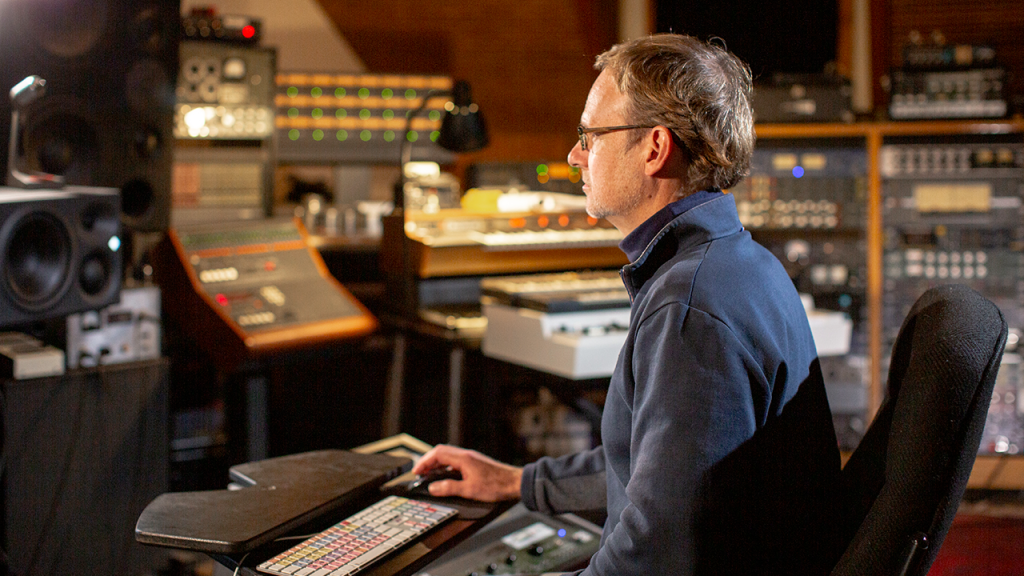





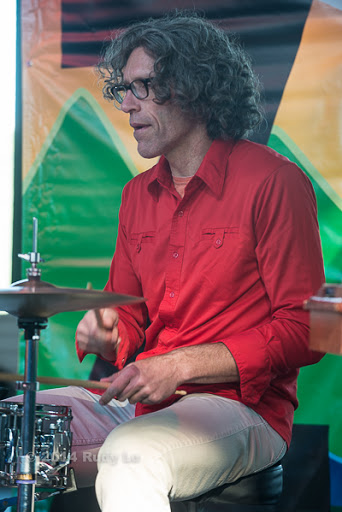
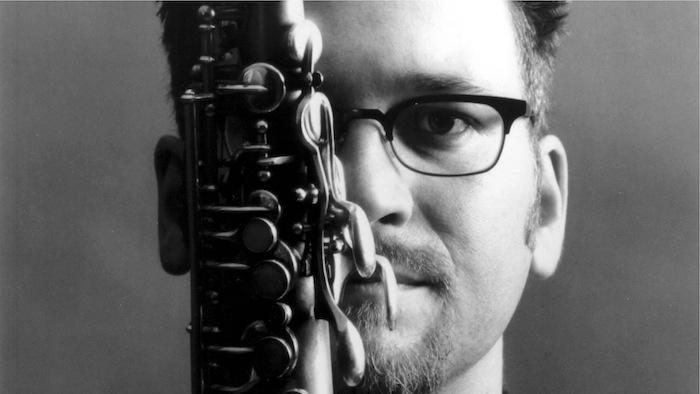
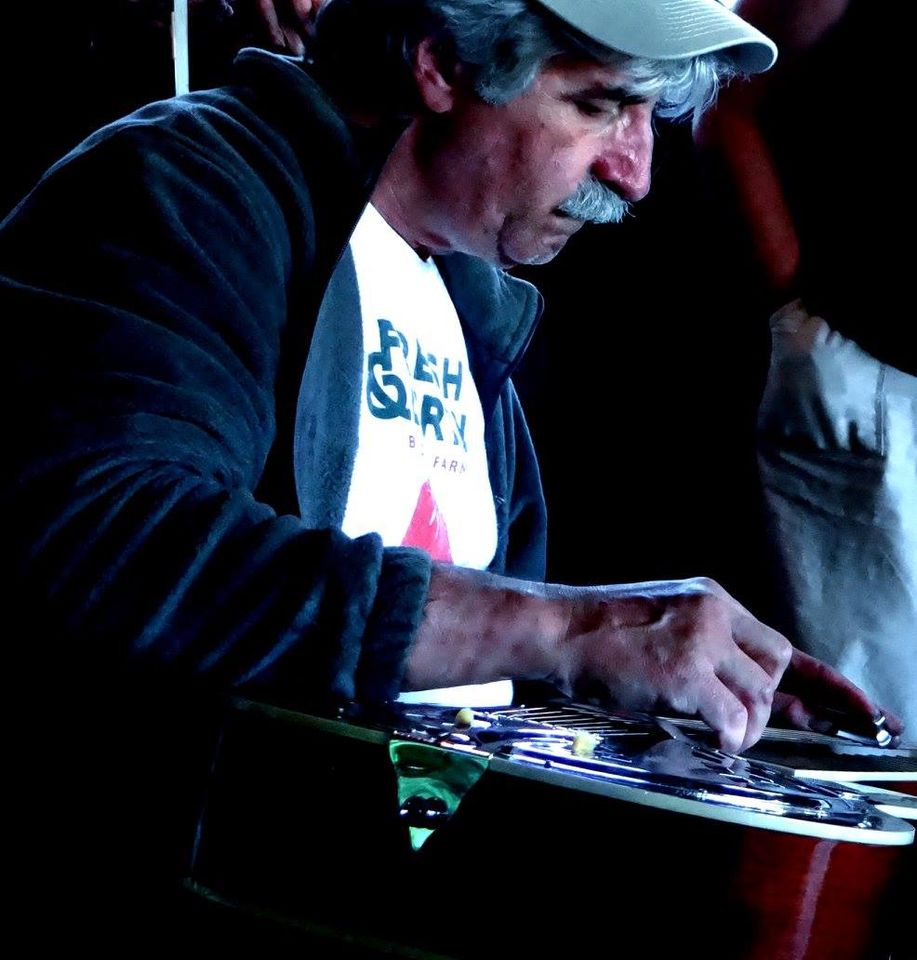

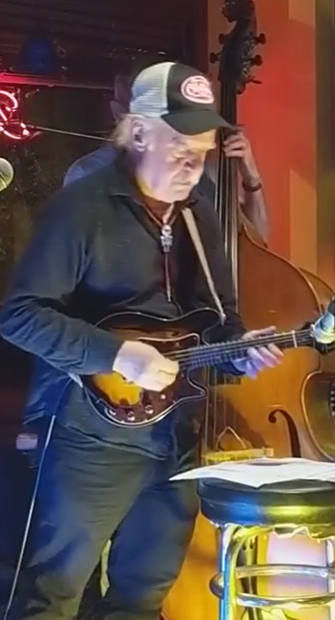


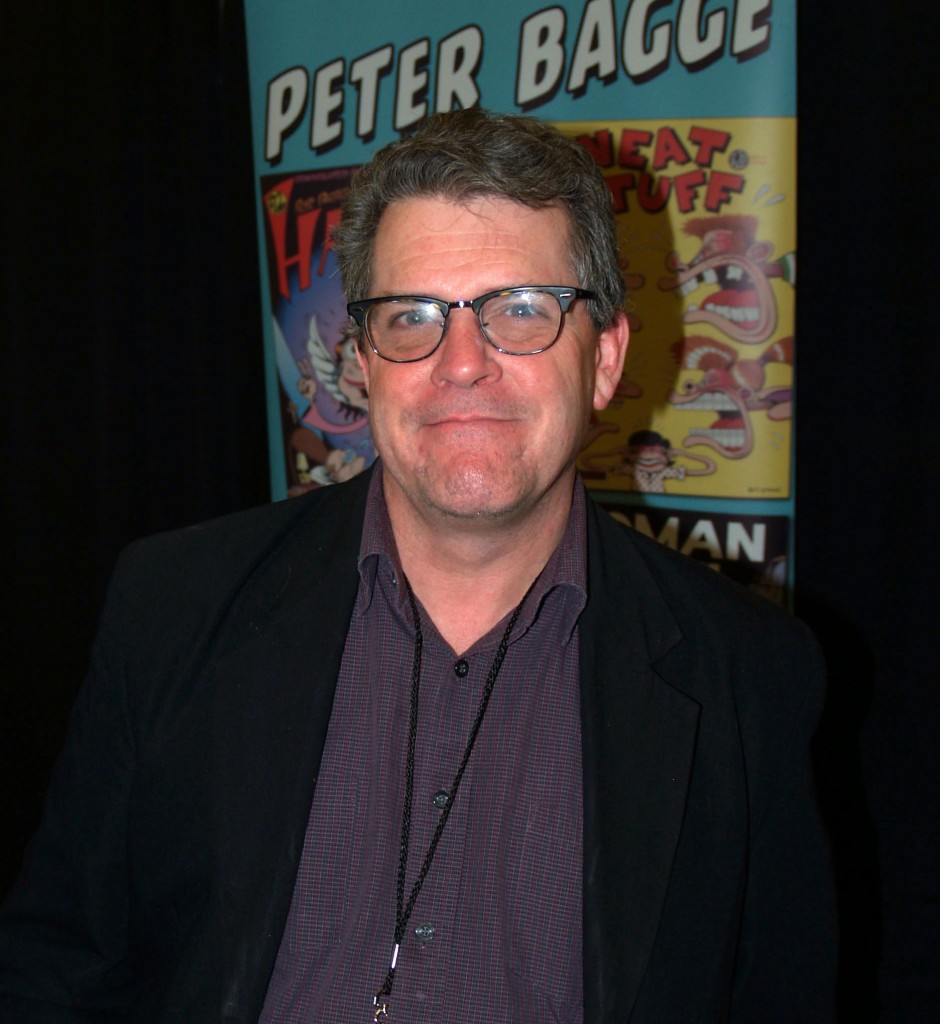

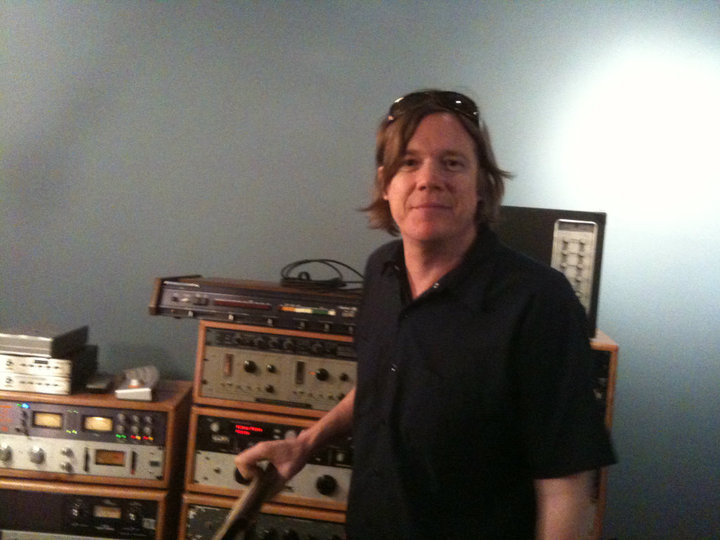


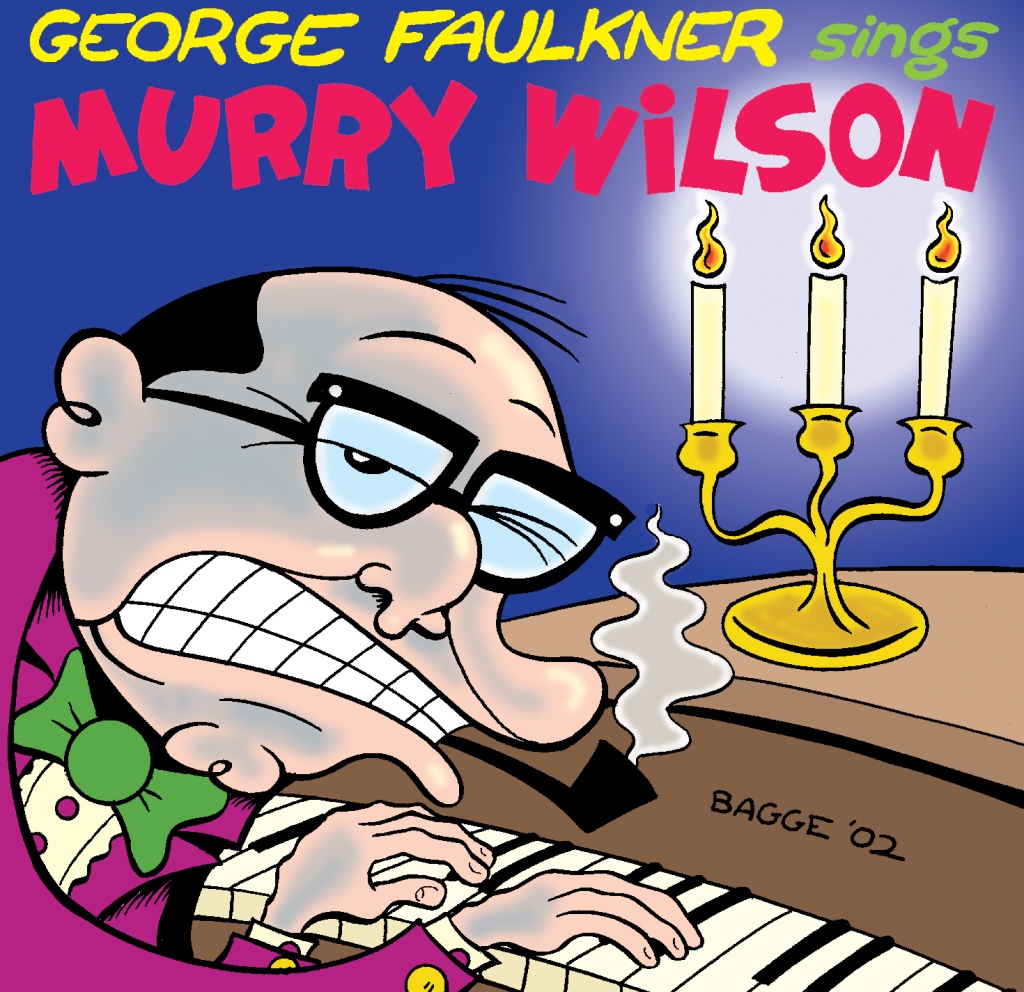
George Faulkner Sings Murry Wilson – Produced by Bryce Goggin, Tony Maimone, Kitty & Lewis Durham, Kevin Basko, Peter Katis, and Aaron Nevezie. Cover art by Peter Bagge. Liner notes by David Marks. Mastered by Pete Weiss. Graphic design by David V. Hughes.
Thanks to the musicians, engineers, and producers, and to Jim Murphy, David Marks, Carrieann Marks, Alan Boyd, Bruce Morgan, Fred Vail, Chris Woods, Jim Stephenson, Akihiko Matsumoto, Eilish, Elliot Kendall, Dr. Demento, Rodney Bingenheimer, David Ponak, Jean Sievers, Marc Time, Harold Mellor, Dave Schneider, Elora, David Haskell, and Phil Milstein for their attention, assistance, and input.
Bio: George Faulkner began his career as a vocalist in the NYC pop-punk group The Rabies. Their regional 7″ single (My Girl’s a) Hologram (Presidential Records, 1982) has been selling for ridiculous amounts of money (which prompted a recent reissue on You Are The Cosmos Records in Spain). He was a member of The Mod Squad and The Intrynsics in the 80s. He was the frontman for alt-rock band The Juicemen (Blue Rose / Massacre Records), throughout the 1990s and released an alt-country album with the band Junkstar in 1996. In 2016, he released his first solo 7″ single. In 2020, George released a new single with The Rabies. Sings Murry Wilson is his first full-length solo album.



One thought on “Sings Murry Wilson”
Comments are closed.